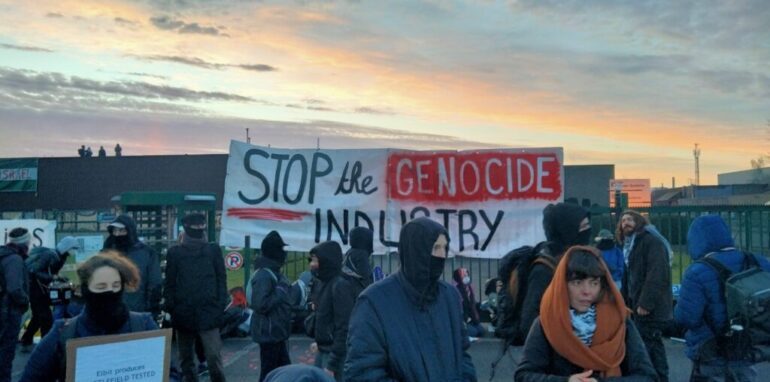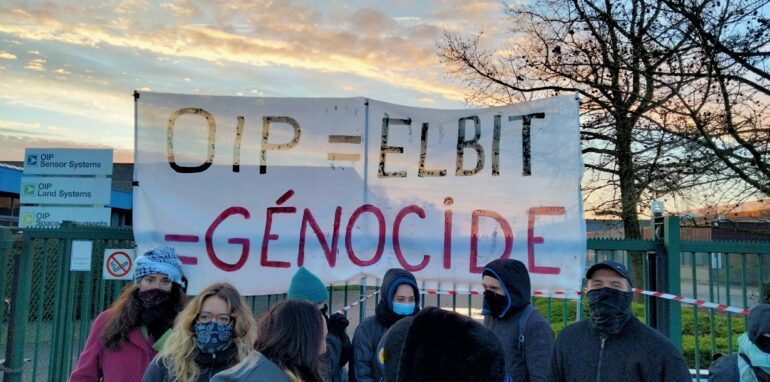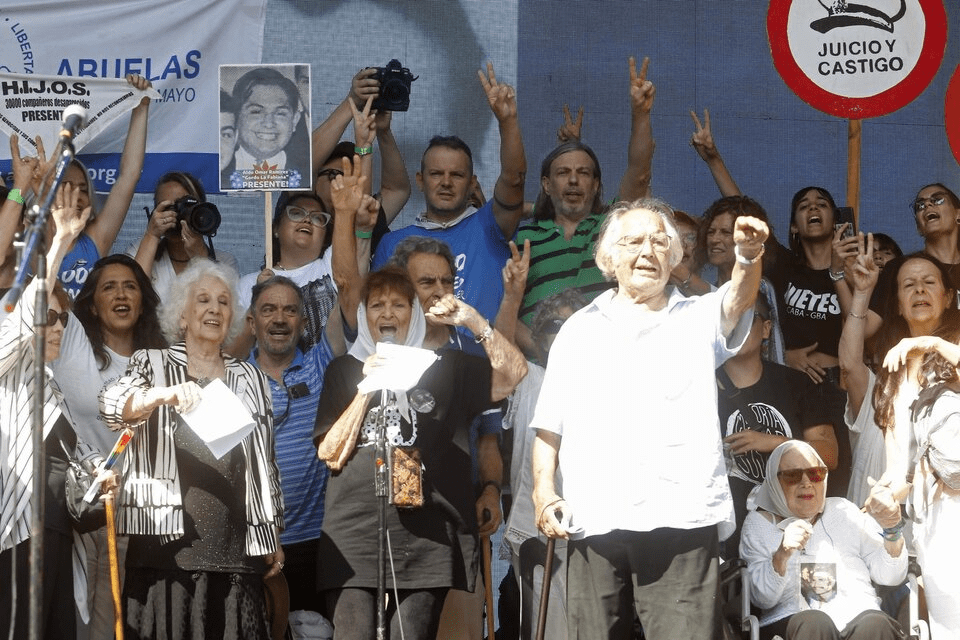In het licht van de onlusten in Tunesië en de verwijten van corruptie en excessieve levenstijl aan het adres van president Ben Ali’s familie is het interessant ook eens naar WikiLeaks te kijken wat de VS ambassade in Tunis hierover zoal schreef.
Corruption in Tunisia: What’s yours is mine
The Sky’s the Limit
2. (C) According to Transparency International’s 2007 index, the perception is that corruption in Tunisia is getting worse. Tunisia’s ranking on the index dropped from 43 in 2005 to 61 in 2007 (out of 179 countries) with a score of 4.2 (with 1 the most corrupt and 10 the least corrupt). Although corruption is hard to verify and even more difficult to quantify, our contacts all agree that the situation is headed in the wrong direction. When asked whether he thought corruption was better, worse, or the same, XXXXXXXXXXXX exclaimed in exasperation, “Of course it’s getting worse!” He stated that corruption could not but increase as the culprits looked for more and more opportunities. Joking about Tunisia’s rising inflation, he said that even the cost of bribes was up. “A traffic stop used to cost you 20 dinars and now it’s up to 40 or 50!”
All in the Family
3. (S) President Ben Ali’s extended family is often cited as the nexus of Tunisian corruption. Often referred to as a quasi-mafia, an oblique mention of “the Family” is enough to indicate which family you mean. Seemingly half of the Tunisian business community can claim a Ben Ali connection through marriage, and many of these relations are reported to have made the most of their lineage. Ben Ali’s wife, Leila Ben Ali, and her extended family — the Trabelsis — provoke the greatest ire from Tunisians. Along with the numerous allegations of Trabelsi corruption are often barbs about their lack of education, low social status, and conspicuous consumption. While some of the complaints about the Trabelsi clan seem to emanate from a disdain for their nouveau riche inclinations, Tunisians also argue that the Trabelsis strong arm tactics and flagrant abuse of the system make them easy to hate. Leila’s brother Belhassen Trabelsi is the most notorious family member and is rumored to have been involved in a wide-range of corrupt schemes from the recent Banque de Tunisie board shakeup (Ref B) to property expropriation and extortion of bribes. Leaving the question of their progenitor aside, Belhassen Trabelsi’s holdings are extensive and include an airline, several hotels, one of Tunisia’s two private radio stations, car assembly plants, Ford distribution, a real estate development company, and the list goes on. (See Ref K for a more extensive list of his holdings.) Yet, Belhassen is only one of Leila’s ten known siblings, each with their own children. Among this large extended family, Leila’s brother Moncef and nephew Imed are also particularly important economic actors.
4. (S/NF) The President is often given a pass, with many Tunisians arguing that he is being used by the Trabelsi clan and is unaware of their shady dealings. XXXXXXXXXXXX a strong supporter of the government and member of XXXXXXXXXXXX, told the Ambassador that the problem is not Ben Ali, but “the Family” going too far and breaking the rules. Nevertheless, it is hard to believe Ben Ali is not aware, at least generally, of the growing corruption problem. This might also reflect the seeming geographical divisions between the Ben Ali and Trabelsi fiefdoms, with the Ben Ali clan reportedly focused on the central coastal regional and the Trabelsi clan operating out of the greater Tunis area and therefore, generating the bulk of the gossip. The Ben Ali side of the Family and his children and in-laws from his first marriage are also implicated in a number of stories. Ben Ali has seven siblings, of which his late brother Moncef was a known drug trafficker, sentenced in absentia to 10 years prison in the French courts. Ben Ali has three children with his first wife Naima Kefi: Ghaouna, Dorsaf and Cyrine. They are married respectively to Slim Zarrouk, Slim Chiboub, and Marouane Mabrouk — all significant economic powers.
This Land is Your Land, This Land is My Land
5. (S/NF) With real estate development booming and land prices on the rise, owning property or land in the right location can either be a windfall or a one-way ticket to expropriation. In summer 2007, Leila Ben Ali received a desirable tract of land in Carthage for free from the GOT in order to build the for-profit Carthage International School (Ref F). In addition to the land, the school received a 1.8 million dinar (US $1.5 million) gift from the GOT, and within a matter of weeks the GOT had built new roads and stoplights to facilitate school access. It has been reported that Ms. Ben Ali has sold the Carthage International School to Belgian investors, but the Belgian Embassy has as yet been unable to confirm or discount the rumor. XXXXXXXXXXXX asserted that the school was indeed sold for a huge, but undisclosed sum. He noted any such sale would be pure profit since Ms. Ben Ali’s received land, infrastructure, and a hefty bonus at no cost.
6. (S/NF) Construction on an enormous and garish mansion has been underway next to the Ambassador’s residence for the past year. Multiple sources have told us that the home is that of Sakhr Materi, President Ben Ali’s son-in-law and owner of Zitouna Radio. This prime real estate was reportedly expropriated from its owner by the GOT for use by the water authority, then later granted to Materi for private use. A cafe owner recounted a similar tale to an Embassy employee, reporting that Belhassen Trabelsi forced him to trade in a cafe he previously owned in a prime location for his current cafe. The cafe owner stated Trabelsi told him he could do whatever he wanted there; if 50 dinar bribes to the police were not effective, Trabelsi said the owner had only to call him and he would “take care of it.”
Yacht Wanted
6. (S/NF) In 2006, Imed and Moaz Trabelsi, Ben Ali’s nephews, are reported to have stolen the yacht of a well-connected French businessman, Bruno Roger, Chairman of Lazard Paris. The theft, widely reported in the French press, came to light when the yacht, freshly painted to cover distinguishing characteristics, appeared in the Sidi Bou Said harbor. Roger’s prominence in the French establishment created a potential irritant in bilateral relations and according to reports, the yacht was swiftly returned. The stolen yacht affair resurfaced in early 2008 due to an Interpol warrant for the two Trabelsis. In May, the brothers were brought before Tunisian courts, in a likely effort to satisfy international justice. The outcome of their case has not been reported.
Show Me Your Money
7. (S) Tunisia’s financial sector remains plagued by serious allegations of corruption and financial mismanagement. Tunisian business people joke that the most important relationship you can have is with your banker, reflecting the importance of personal connections rather than a solid business plan in securing financing. The legacy of relationship-based banking is a sector-wide rate of non-performing loans that is 19 percent, which remains high but is lower than a high of 25 percent in 2001 (Ref I). Embassy contacts are quick to point out that many of these loans are held by wealthy Tunisian business people who use their close ties to the regime to avoid repayment (Ref E). Lax oversight makes the banking sector an excellent target of opportunity, with multiple stories of “First Family” schemes. The recent reshuffle at Banque de Tunisie (Ref B), with the Foreign Minister’s wife assuming the presidency and Belhassen Trabelsi named to the board, is the latest example. According to a representative from Credit Agricole, Marouane Mabrouk, another of Ben Ali’s sons-in-law, purchased a 17 percent share of the former Banque du Sud (now Attijari Bank) shares immediately prior to the bank’s privatization. This 17 percent share was critical to acquiring controlling interest in the bank since the privatization represented only a 35 percent share in the bank. The Credit Agricole rep stated that Mabrouk shopped his shares to foreign banks with a significant premium, with the tender winner, Spanish-Moroccan Santander-Attijariwafa ultimately paying an off the books premium to Mabrouk. XXXXXXXXXXXX recounted that when he was still at his bank he used to receive phone calls from panicked clients who stated that Belhassen Trabelsi had asked them for money. He did not indicate whether he advised them to pay.
The Trickle Down Effect
8. (S) While the stories of high-level, Family corruption are among the most flagrant and oft-repeated, Tunisians report encountering low-level corruption more frequently in their daily lives. Speeding tickets can be ignored, passports can be expedited, and customs can be bypassed — all for the right price. Donations to the GOT’s 26-26 Fund for development or to the Bessma Society for the Handicapped -Leila Ben Ali’s favored charity — are also believed to grease the wheels. Hayet Louani (protect), a well-connected member of Parliament, faced increased pressure from the GOT after refusing several “requests” to donate money to Trabelsi’s soccer team. XXXXXXXXXXXX reported that customs inspectors demanded 10,000 dinars to get his goods through customs; he did not reveal whether or not he acquiesced to the demand.
9. (S) Nepotism is also believed to play a significant role in awarding scholarships and offering jobs. Knowing the right people at the Ministry of Higher Education can determine admission to the best schools or can mean a scholarship for study abroad. An Embassy FSN stated that the Director of International Cooperation, a long-time contact, offered to give his son a scholarship to Morocco on the basis of their acquaintance. If you do not know someone, money can also do the trick. There are many stories of Tunisians paying clerks at the Ministry of Higher Education to get their children into better schools than were merited by their test scores. Government jobs — a prize in Tunisia — are also believed to be doled out on the basis of connections. Leila Ben Ali’s late mother, Hajja Nana, is also reported to have acted as a broker for both school admissions and government job placement, providing her facilitation services for a commission. Among the complaints from the protestors in the mining area of Gafsa were allegations that jobs in the Gafsa Phosphate Company were given on the basis of connections and bribery.
Mob Rule?
10. (S/NF) The numerous stories of familial corruption are certainly galling to many Tunisians, but beyond the rumors of money-grabbing is a frustration that the well-connected can live outside the law. One Tunisian lamented that Tunisia was no longer a police state, it had become a state run by the mafia. “Even the police report to the Family!” he exclaimed. With those at the top believed to be the worst offenders, and likely to remain in power, there are no checks in the system. The daughter of a former governor recounted that Belhassen Trabelsi flew into her father’s office in a rage -even throwing an elderly office clerk to the ground — after being asked to abide by laws requiring insurance coverage for his amusement park. Her father wrote a letter to President Ben Ali defending his decision and denouncing Trabelsi’s tactics. The letter was never answered, and he was removed from his post shortly thereafter. The GOT’s strong censorship of the press ensures that stories of familial corruption are not published. The Family’s corruption remains a red line that the press cross at their own peril. Although the February imprisonment of comedian Hedi Oula Baballah was ostensibly drug-related, human rights groups speculate his arrest was punishment for a 30 minute stand-up routine spoofing the President and his in-laws (Tunis D). International NGOs have made the case that the harsh prison conditions faced by journalist Slim Boukdhir, who was arrested for failing to present his ID card and insulting a police officer, are directly related to his articles criticizing government corruption. Corruption remains a topic relegated to hushed voices with quick glances over the shoulder
The Elephant in the Room
11. (S) Several Tunisian economists argue that it does not matter whether corruption is actually increasing because “perception is reality.” The perception of increasing corruption and the persistent rumors of shady backroom dealings has a negative impact on the economy regardless of the veracity. Contacts tell us they afraid to invest for fear that the family will suddenly want a cut. “What’s the point?” Alaya Bettaieb asked, “The best case scenario is that my investment succeeds and someone important tries to take a cut.” Persistently low domestic investment rates bear this out (Ref H). Foreign bank accounts, while illegal, are reportedly commonplace. A recent Ministry of Finance amnesty to encourage Tunisians to repatriate their funds has been an abject failure. Bettaeib stated that he plans to incorporate his new business in Mauritania or Malta, citing fear of unwanted interference. Many economists and business people note that strong investment in real estate and land reflects the lack of confidence in the economy and an effort to keep their money safe (Ref C).
12. (S) Thus far, foreign investors have been undeterred, and according to Tunisian business contacts, largely unaffected. Foreign investment continues to flow in at a healthy rate, even excluding the privatizations and huge Gulf projects which have yet to get underway. Foreign investors more rarely report encountering the type of extortion faced by Tunisians, perhaps reflecting that foreign investors have recourse to their own embassies and governments. British Gas representatives told the Ambassador they had not encountered any impropriety. XXXXXXXXXXXX stated that several years ago Belhassen Trabelsi attempted to strong arm a German company producing in the offshore sector, but that after the German Embassy intervened Trabelsi was explicitly cautioned to avoid offshore companies. Despite pronouncements about increasing domestic investment, the GOT focuses heavily on increasing FDI flows to the country, particularly in the offshore sector. Nevertheless, there are still several examples of foreign companies or investors being pressured into joining with the “right” partner. The prime example remains McDonald’s failed entry into Tunisia. When McDonald’s chose to limit Tunisia to one franchisee not of the GOT’s choosing, the whole deal was scuttled by the GOT’s refusal to grant the necessary authorization and Macdonald’s unwillingness to play the game by granting a license to a franchisee with Family connections.
Comment
13. (S) Although the petty corruption rankles, it is the excesses of President Ben Ali’s family that inspire outrage among Tunisians. With Tunisians facing rising inflation and high unemployment, the conspicuous displays of wealth and persistent rumors of corruption have added fuel to the fire. The recent protests in the mining region of Gafsa provide a potent reminder of the discontent that remains largely beneath the surface. This government has based its legitimacy on its ability to deliver economic growth, but a growing number of Tunisians believe those as the top are keeping the benefits for themselves.
14. (S) Corruption is a problem that is at once both political and economic. The lack of transparency and accountability that characterize Tunisia’s political system similarly plague the economy, damaging the investment climate and fueling a culture of corruption. For all the talk of a Tunisian economic miracle and all the positive statistics, the fact that Tunisia’s own investors are steering clear speaks volumes. Corruption is the elephant in the room; it is the problem everyone knows about, but no one can publicly acknowledge. End Comment.
Bron: CORRUPTION IN TUNISIA: WHAT’S YOURS IS MINE – Ambassade Tunis – 23/6/2008 (WikiLeaks)
Dinner with Sakher El-Materi
Het volgende uitreksel handelt over een bezoek dat de VS ambassadeur bracht aan het luxueuze huis van president Ben Ali’s schoonzoon Mohammed Sakhr El-Materi, gehuwd met diens dochter Neshrine. Hij is Leila Trabelsi, de presidentsvrouwe’s favoriet voor de “troonopvolging”.
El-Materi Unplugged: Home/Personal Life
11. (S) El-Materi’s house is spacious, and directly above and along the Hammamet public beach. The compound is large and well guarded by government security. It is close to the center of Hammamet, with a view of the fort and the southern part of the town. The house was recently renovated and includes an infinity pool and a terrace of perhaps 50 meters. While the house is done in a modern style (and largely white), there are ancient artifacts everywhere: Roman columns, frescoes and even a lion’s head from which water pours into the pool. El Materi insisted the pieces are real. He hopes to move into his new (and palatial) house in Sidi Bou Said in eight to ten months.
12. (S) The dinner included perhaps a dozen dishes, including fish, steak, turkey, octopus, fish couscous and much more. The quantity was sufficient for a very large number of guests. Before dinner a wide array of small dishes were served, along with three different juices (including Kiwi juice, not normally available here). After dinner, he served ice cream and frozen yoghurt he brought in by plane from Saint Tropez, along with blueberries and raspberries and fresh fruit and chocolate cake. (NB. El Materi and Nesrine had just returned from Saint Tropez on their private jet after two weeks vacation. El Materi was concerned about his American pilot finding a community here. The Ambassador said he would be pleased to invite the pilot to appropriate American community events.)
13. (S) El Materi has a large tiger (“Pasha”) on his compound, living in a cage. He acquired it when it was a few weeks old. The tiger consumes four chickens a day. (Comment: The situation reminded the Ambassador of Uday Hussein’s lion cage in Baghdad.) El Materi had staff everywhere. There were at least a dozen people, including a butler from Bangladesh and a nanny from South Africa. (NB. This is extraordinarily rare in Tunisia, and very expensive.)
14. (S) They have three children, two girls and a boy. Leila is four and another daughter that is about 10 months. Their boy is adopted and is two years old. The youngest daughter is a Canadian citizen, by virtue of birth in Canada. The family’s favorite vacation destination spot is the Maldives Islands.
15. (S) El Materi said he has begun an exercise and diet regime. He has, he said, recently lost weight (it was visibly true). El Materi said he eats in a “balanced” way. He had just spent an hour on a bike, he claimed. Nesrine said she gets no exercise.
16. (S) Both El Materi and Nesrine speak English, although their vocabulary and grammar are limited. They are clearly eager to strengthen their English. Nesrine said she loves Disney World, but had put off a trip this year because of H1N1 flu. Nesrine has, for sometime, had Tamiflu nearby (even taking it on trips). Originally it was out of fear of bird flu. She packs it for El Materi too when he travels. Nesrine said she has visited several US cities. El Materi had only been to Illinois recently in connection with the purchase of a plane.
Comment
17. (S) Throughout the evening, El Materi often struck the Ambassador as demanding, vain and difficult. He is clearly aware of his wealth and power, and his actions reflected little finesse. He repeatedly pointed out the lovely view from his home and frequently corrected his staff, issued orders and barked reprimands. Despite this, El Materi was aware of his affect on the people around him and he showed periodic kindness. He was unusually solicitous and helpful to the Ambassador’s wife, who is disabled. Occasionally, he seemed to be seeking approval. One western Ambassador in Tunis, who knows El Materi, has commented that he has western-style political skills in his willingness to engage with ordinary citizens. It is an uncommon trait here.
18. (S) El Materi, in recent months, has been ever more visible in the local diplomatic community. He has clearly decided (or been told) to serve as a point of contact between the regime and key ambassadors. Nesrine, at age 23, appeared friendly and interested, but nave and clueless. She reflected the very sheltered, privileged and wealthy life she has led. As for the dinner itself, it was similar to what one might experience in a Gulf country, and out of the ordinary for Tunisia.
19. (S) Most striking of all, however, was the opulence with which El Materi and Nesrine live. Their home in Hammamet was impressive, with the tiger adding to the impression of “over the top.” Even more extravagant is their home still under construction in Sidi Bou Said. That residence, from its outward appearance, will be closer to a palace. It dominates the Sidi Bou Said skyline from some vantage points and has been the occasion of many private, critical comments. The opulence with which El Materi and Nesrine live and their behavior make clear why they and other members of Ben Ali’s family are disliked and even hated by some Tunisians. The excesses of the Ben Ali family are growing.
Bron: TUNISIA: DINNER WITH SAKHER EL MATERI – Ambassade Tunis – 27/7/2009 (WikiLeaks)
Link: TuniLeaks (Alle WikiLeaks telexen over Tunesië)
Op De Wereld Morgen:











